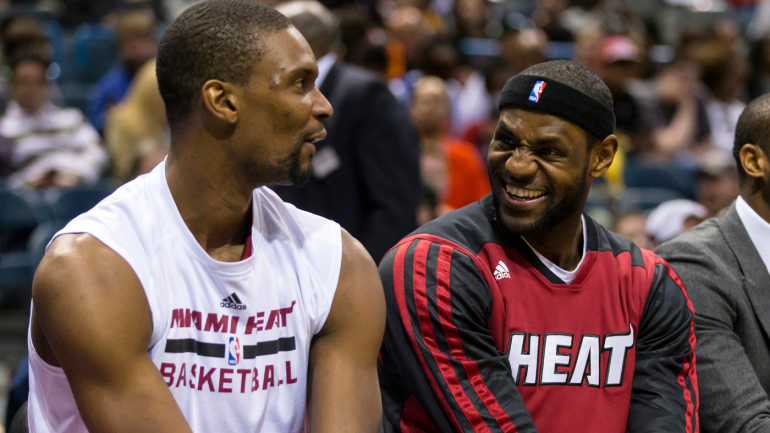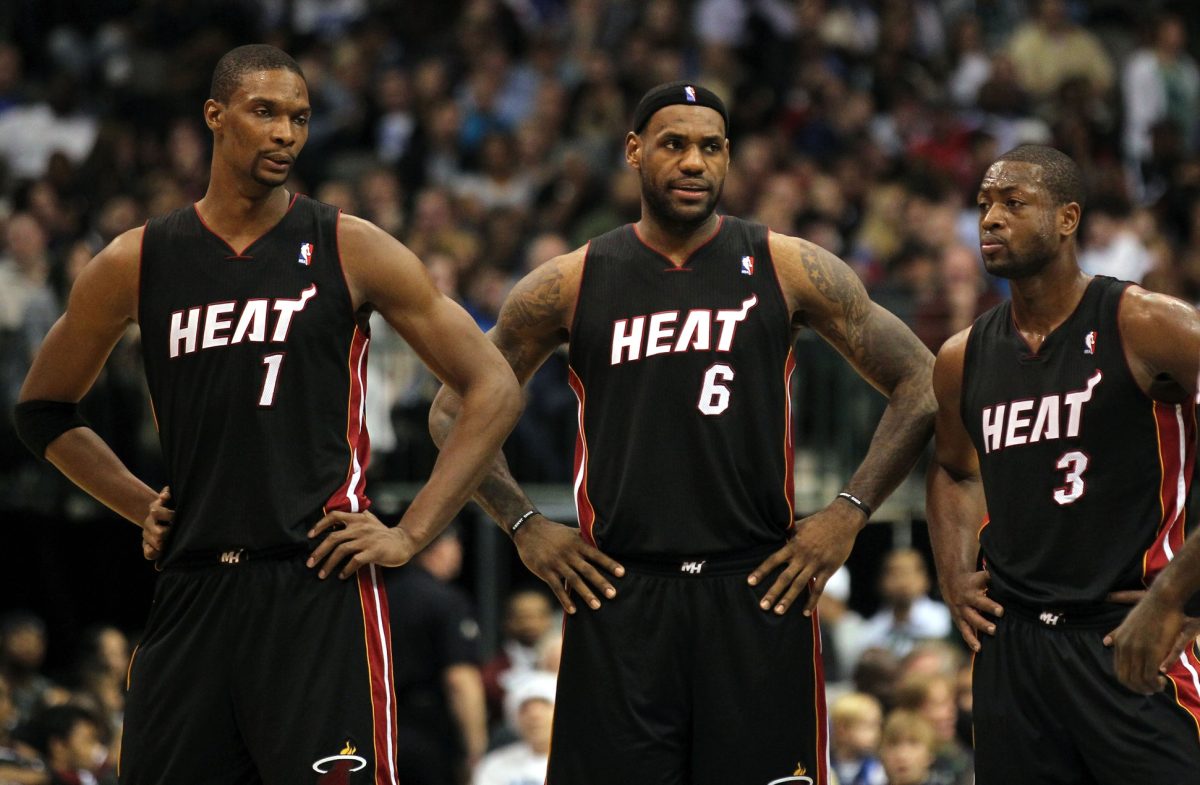Udonis Haslem explained his surprising choice this week on a podcast

USATSI
Udonis Haslem may have stopped playing in the NBA, but the former Heat big man and franchise legend is still in and around the game, both as a member of Miami’s front office and as a podcaster. During a recent episode of his show, “The OGs Podcast with Udonis Haslem and Mike Miller,” he made an interesting comment about some big-name former Heat teammates.

According to Haslem, Chris Bosh was the most important player on the Heat during the run of four straight Finals appearances, not LeBron James. Here’s Miller and Haslem:
Mike Miller: “I’m telling you, if [Chris Bosh] stayed healthy, he’d still be playing.”
Udonis Haslem: “Everybody thinks that our most important player was [LeBron James]. Our most important player, not our best player, our most important player was [Bosh]. He was our most important player. If [James] went down, you could bring in [Dwyane Wade]. It’s not the same player, but you’re gonna get similar results of what you’re gonna get out of the player — making plays, he can go for 30.
“We couldn’t simulate — we didn’t have another [Bosh]. If that motherf—– went down and he got hurt, we didn’t have another one of those.”
Mike Miller: “And the way [Erik Spoelstra] started using him too was impossible to guard, like he was shooting 3s. That man was cold, brother. And that’s when no one did that.”

Bosh was an incredible player and his offensive rebound and kickout to Ray Allen in Game 6 of the 2013 Finals is one of the most clutch moments in NBA history. He was a crucial part of those title teams and a deserved Hall of Famer. He was not, however, the most important player on the Heat during those four seasons.
If you want to say he was the X-factor or his impact was overlooked, that’s one thing. But just because the Heat didn’t have anyone to replicate his role or production doesn’t make him more important than the best player in the world at the peak of his powers. In fact, Bosh did get hurt during the 2012 playoffs — he suffered an abdominal strain in Game 1 of the second round and didn’t return until Game 5 of the Eastern Conference Finals — and the Heat won the title anyway
During that 2012 postseason run, James averaged 30.3 points, 9.7 rebounds, 5.6 assists and 1.9 steals per game on 50% shooting. When they went back-to-back in 2013, he was at 25.9 points, 8.6 rebounds, 6.6 assists and 1.8 steals per game on 49.1% shooting.
There’s no replacing that, as the Heat found out during the 2014-15 season when James left and they missed the playoffs.